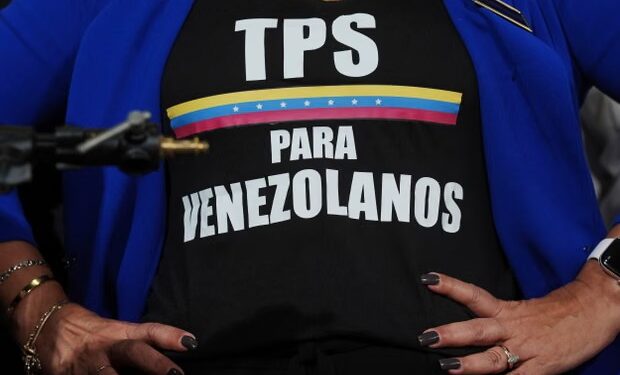Former president Donald Trump has again petitioned the Supreme Court to end temporary protections for Venezuelans residing in the United States, intensifying the political and legal fight over the status of more than 200,000 migrants.
Background to the dispute
The case centres on the Temporary Protected Status (TPS) programme, which allows migrants from countries facing severe crises to live and work in the US without the threat of deportation. Venezuelans were granted TPS due to the country’s political turmoil, economic collapse, and widespread human rights abuses. The Biden administration extended the programme, citing continued instability, but Trump and his allies argue that it should be wound down.
The Supreme Court petition
Trump’s legal team has asked the justices to overturn a lower court ruling that prevented South Dakota Governor Kristi Noem from unilaterally ending TPS protections. The Justice Department also weighed in, urging the high court to clarify the limits of executive and state authority in managing immigration programmes. For Trump, who has made restricting immigration a central theme of his campaign, the case serves as both a political rallying point and a potential legal victory.
Impact on Venezuelan migrants
More than 200,000 Venezuelans in the US are shielded from deportation by TPS, concentrated largely in Florida, Texas, and New York. For many, the status has enabled access to stable jobs and education. Advocacy groups warn that ending protections would uproot families, destabilise communities, and send people back to a country still grappling with hyperinflation, shortages, and political repression.
Legal and political implications
The case raises broader questions about presidential authority in immigration matters. While TPS is traditionally exercised by the federal executive branch, the intervention by state officials, including Noem, has created new legal complexities. The Justice Department’s intervention underscores the stakes, as the outcome could reshape the balance of power between federal and state governments in immigration policy.
What comes next
The Supreme Court is expected to consider whether to take up the case in its upcoming term. A decision could have immediate consequences for Venezuelans in the US and set a precedent affecting TPS recipients from other nations. Politically, the debate is likely to intensify in the months leading to the 2026 elections, as immigration remains one of the most divisive issues in American politics.
Newshub Editorial in US – 17 September 2025



Recent Comments